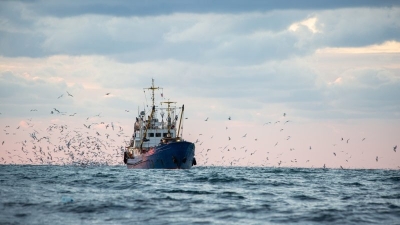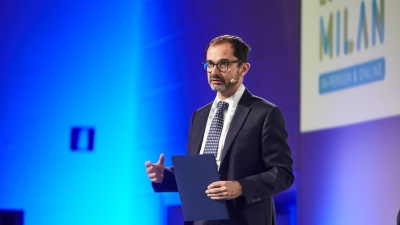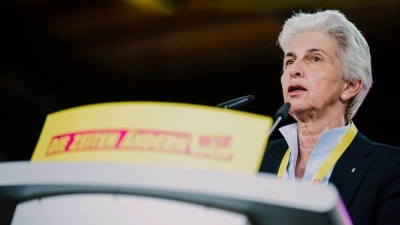Political gridlock endangers children’s rights to protection from online sexual abuse

Privacy has dominated the discussion over the regulation curbing child sexual abuse online – at the expense of children’s rights, writes Liora Lazarus.
The right to privacy and the protection of personal data is rightly treasured in the European Union, and their protection has led to groundbreaking EU legislation.
The EU’s commitment to privacy is, however, threatening to undermine another fundamental right: that of children to be protected from online sexual abuse.
Concerns about privacy have dominated the ongoing debate around a regulation laying down rules to prevent and combat child sexual abuse to such an extent that it is diverting attention from the obligations EU member states have towards children.
This one-sided approach, particularly prevalent in the European Parliament, not only threatens to leave millions of children exposed to online sexual harms, it is also methodologically flawed as a matter of human rights law.
States are required to resolve the inherent tensions between the different rights its citizens hold. In this case, while privacy is an important qualified right that requires protection of its essence, children too have a right to protection against inhuman and degrading treatment, which is a weighty absolute right requiring the government to act.
Unfortunately, the EU debate has been dominated by a monoscopic view of the right to privacy and data protection that has failed to engage adequately with the countervailing duties that States hold to children.
The EU Commission has drawn attention to these positive duties in its proposals in justifying the purpose of the bill, but MEPs hardly ever mention them.
The Commission’s initial approach promotes the use of innovative detection technology while also instituting a range of necessary safeguards to ensure that balance between children’s rights and privacy.
In contrast, the Parliamentary amendments place privacy wholly above the obligation to protect children, making much of the regulation devoid of purpose.

EU countries share case studies on fighting child sexual abuse material
An EU Council document about case studies illustrating the implementation of the regulation aiming to prevent online child sexual abuse material gives examples of how reports of such material were handled by member states.
The EU and its member states must find a balance between the two sets of rights and obligations that are engaged in this context, but opponents in both the European Parliament and Council have resisted efforts to reach a compromise.
Every bill takes time to go through the legislative process, but in this case there’s also a ticking clock.
If the EU cannot reach an agreement before the current derogation – which allows communications services to detect child abuse material in the absence of a comprehensive regulation – expires this summer, companies will have no legal basis to look for child abuse content on their platforms.
Not only would this place children at significant risk of online sexual abuse, it could also violate the EU and member states’ legal duties to protect children.
Online sexual abuse and exploitation of children constitutes a gross and serious violation of children’s fundamental rights – rights which exist in international and European human rights law as well as the founding treaties of the European Union.
Article 3 of the Treaty of the EU and Article 24 of the EU Charter of Fundamental Rights emphasise protection of the rights of the child.
As the Court of Justice of the EU has regularly emphasises, Article 83(1) of the Treaty on the Functioning of the European Union lists ‘sexual exploitation of … children as a particularly serious crime’.
In addition to the EU’s founding treaties, EU member states have signed up to the UN Convention on the Rights of the Child as well as the Council of Europe Convention on the Protection of Children Against Sexual Exploitation and Sexual Abuse which requires states to take appropriate measures, including legislative ones, to protect children from sexual abuse.
All EU member states are also bound by the European Convention on Human Rights. Here too, the European Court of Human Rights has upheld positive obligations on States to protect children from sexual abuse, insisting that government measures be ‘practical and effective’ and entailing that States ‘maintain … an adequate legal framework’ for the effective prevention, investigation, prosecution and punishment of sexual abuse of children – all of which the Commission’s proposal legislates.

EU Ombudsman launches probe into Europol officials’ alleged conflict of interest
The EU Ombudsman launched an investigation into the transfer of two former Europol officials to child protection organisation Thorn on Wednesday (4 January).
All of this is to say that EU countries are obliged by a range of human rights obligations – including EU Treaty law – to protect children. It is to ensure these rights that the European Commission proposed the regulation.
Instead of looking at the regulation as a threat to privacy, one should see the lack of comprehensive legislation to prevent sexual abuse material from circulating online as a major threat to fundamental rights.
While EU member states have a margin of appreciation in how positive obligations are fulfilled, member states must nevertheless find the optimum balance between respect for negative rights protections to privacy and data protection, while also fulfilling the minimum standards required by the positive obligations placed upon them.
If the emphasis on the right to privacy ultimately obstructs a state’s efforts to effectively prevent and investigate crimes, then the rights balance must be renegotiated to ensure children’s rights to protection are fulfilled.
A stereoscopic view of human rights is consequently a requirement of human rights law. The current political prioritisation of the right to privacy and data protection, at the expense of the positive obligations owed to children, risks violating well-established human rights legal standards.



